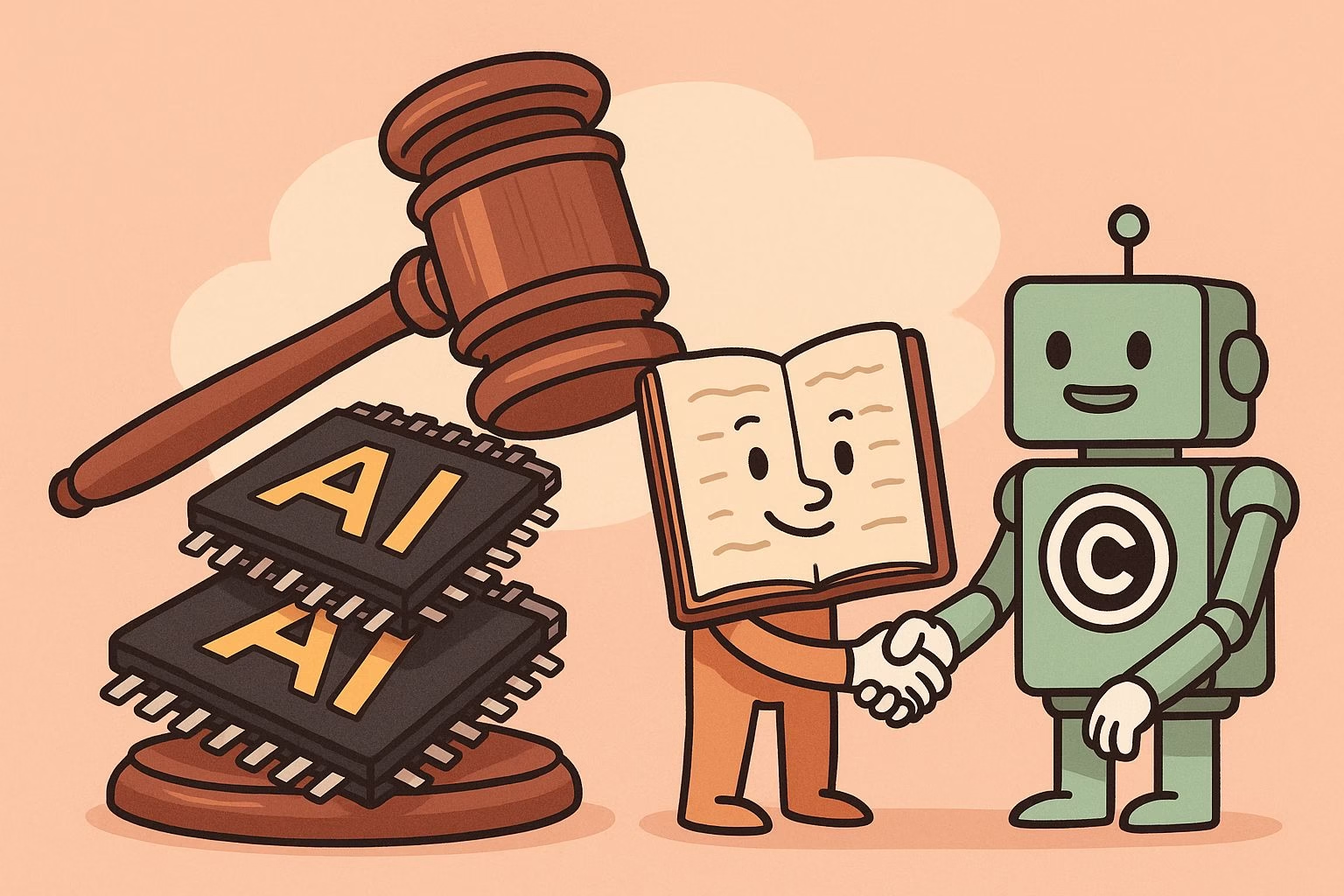Anthropic’s Fair Use Win Changes the AI Training Game
I’ve been watching Anthropic’s legal journey with intense interest. They just scored a key victory when a federal judge in San Francisco ruled that using copyrighted books for AI training falls under fair use.
This shakes up how startups and big tech source their data, and it will shape what we see from future generative models.
I’m breaking this down into:
-
What the court decision says and why it matters
-
How it affects authors, publishers, and businesses
-
What startups and regulators should do next
A Transformative Win in the Courts

At the heart of the case, the judge determined that Anthropic didn’t republish the books but absorbed ideas, styles, and language to power its AI. That falls under transformative fair use.
I got the sense from the ruling that courts may be shifting from copying to learning to accommodate how AI works.
Anthropic’s lawyers stressed that training models at scale would become legally untenable without this protection. Startups and developers needed a clear path forward.
Now they have it, but authors raised alarms that their work could be absorbed without compensation. That tension highlights the stakes of balancing creative rights with technological advancement.
The ruling’s ripple effect extends across publishers and creators. Some groups warn it could let AI companies bypass licensing, while others hope it leads to new models where authors get paid for data use, instead of blocking those systems entirely.
Implications for the Creative Ecosystem
Authors and publishers likely feel like this decision undercuts their rights.
They could feel sidelined unless AI firms voluntarily license or license-lite terms emerge. I see a future where collective-led compensation systems pay experts whose works help train AI.
Publishers might consider dual strategies:
-
Push for legislative updates to clarify fair-use limits
-
Offer licensing frameworks to AI companies, creating new revenue while setting ethical standards
For startups, the ruling means they can push ahead with confidence.
Investors should take note: legal certainty can unlock capital, but businesses should still practice transparency around training datasets and consider royalty-like arrangements to ease market tensions.
Actions for Startups and Regulators
I advise startups to:
-
Create clear documentation of sources used in training
-
Develop opt-in or opt-out options for published authors
-
Explore revenue-sharing or licensing models for sensitive data types
Regulators should study this ruling carefully. It creates an opening to define AI-specific data standards, perhaps via copyright exceptions or curated public-domain corpora.
Setting expectations for “transformative” use will encourage innovation while protecting creators.
Balancing Innovation and Fairness
I know this could go one of two ways. Without compensation structures, authors may push back harder, either legally or legislatively. But if platforms invent transparent content credits or micropayment schemes, we could see a more collaborative future.
In the open-source world, contributors often receive recognition or license terms, even without payment. AI training could follow suit, crediting authors in meaningful, if indirect, ways.
The Road Ahead
I’m watching several next steps closely:
-
Whether major publishers band together for licensing standards
-
If legislation emerges in Congress to clarify AI training rights
-
How other courts respond if Anthropic’s win is challenged or extended
This also affects us as consumers. The text and images we enjoy online may help build future generations of AI.
That makes transparency and consent important, not only for creators, but for those using the output too.
My Take
I believe this ruling is a positive step toward responsible AI growth. It confirms that learning from old work to create new work is legitimate.
The challenge now is to build fair compensation systems, so authors feel supported instead of exploited.
Innovation without fairness breeds trust issues. We’ve seen that with social media algorithms. AI needs better optics if it’s going to earn trust from the public, and from the creative sector that feeds it.
What to Do Now
If you’re an AI startup, use this speech moment. Build your ethics into data protocols. Invest in transparency. Talk to publishers or authors about pilot licensing programs.
If you’re a policymaker or regulator, draft definitions for transformative AI training. Encourage models that credit or compensate creators. That will prevent this from becoming a free-for-all.
If you’re a creator or publisher, consider collective bargaining or opt-in platforms. New revenue models often grow out of collaboration, not confrontation.
A Future Where Both Thrive
I’m optimistic we can reach a middle ground. AI can continue learning and innovating, while creators find new ways to benefit. Courts have given us room to build that ecosystem. It’s our responsibility to fill that space.
Let’s make this an era where technology and creativity fuel each other, not compete. That’s how we build trust, value, and innovation, together.
